Wisdom from the gurus
Ten of our Top 50 financial Advisers describe their investment philosophies and how they’re applied.
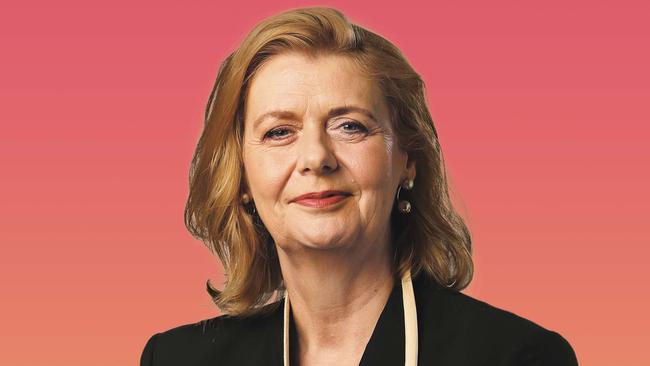
This is the third annual Barron’s Top 50 Financial Advisers list — and the first which ranks a woman at the top of what has for a long time been a male-dominated industry.
Sue Dahn from Pitcher Partners, Melbourne has been on the list before and now joins previous winners — Charlie Viola of Pitcher Partners, Sydney in 2018 and Scott Carmichael of Escala Partners, Melbourne in 2017. The 2019 list includes 29 new advisers among the 50 and seven women — up from six last year.
The Australian list is compiled in partnership with the New-York based Barron’s investment publication which has for many years produced the top advisers list for the US.
Most of the advisers on our list run a team of about 10 people and manage a client book worth about $1 billion.
Many top advisers still do not define a minimum dollar amount they are prepared to handle for a client, but the average portfolio is $1.98 million — generally excluding the value of the family home.
While the average is $1.98 million there is considerable variation between advisers, with more than one demanding a minimum client portfolio of $5 million but with the lowest minimum set at $250,000.
Our top advisers are mainly based in Sydney, Melbourne, Brisbane and Perth with a sprinkling of entrants from the moneyed enclaves on Queensland’s Gold Coast such as Broadbeach and Sanctuary Cove.
New arrivals on the list include the team from Koda Capital with several — including Charles Moore, Peter Dunn and Frank Macindoe — making the list.
We also have new entrants such as Olivia Maragna from Aspire Retire, Brett Stene from Jacaranda Financial Planning, Hamish Harvey from Stanford Brown and Philip Zhou from Macquarie Wealth Management.
Within the top 10 we have already witnessed considerable staying power since we started the list in 2017, with Pitcher Partners, Escala Partners and Morgan Stanley all continuing to hold down several positions. Only one Sydney-based adviser — Viola of Pitcher Partners — makes the top 10.
The regulars on the list include second-placed Garth Hu of Morgan Stanley along with brother and sister Claire and Tim Mackay of the Quantum Financial group in Sydney.
Regular contributors to The Australian’s Wealth section, such as Will Hamilton of Hamilton Wealth Management and Douglas Turek of Professional Wealth, who are also well-known investment commentators, have become veterans of the list.
James Kirby
-
Australia’s top financial advisers call on a range of technical and personal skills to help clients across the country.
#1. SUE DAHN, Pitcher Partners Investment Services
Financial adviser and company director Sue Dahn has helped hundreds of high net worth clients over the years — not all of them from typical establishment or small business backgrounds.
“I have had the pleasure of working with people from a broad range of environments who might not traditionally be expected to have sizeable assets,” Dahn says. “I have had lottery winners and beneficiaries of bequests. They have never experienced the burden of managing assets and they need to be convinced there’s someone on their side making recommendations in their interest.”
Being a financial friend to newly enriched but bewildered Lotto winners has helped the Pitcher Partners principal win top spot in this year’s Barron’s top 50 rankings, having finished third last year.
Dahn founded the Melbourne practice of Pitcher Partners Investment Services in 1998 after she and the Pitcher Partners accounting firm saw a glaring gap in the market. “It was so hard to find the right people so they (Pitchers) decided to build their own service for clients who, for example, were exiting businesses and needed to invest the proceeds,” she says.
Dahn personally looks after 22 client groups, with funds under management of $1.5 billion. The firm has $4 billion of funds under management, but also advises institutional clients accounting for a further $1.3 billion.
Private clients account for about two-thirds of the firm’s client base, with smaller institutions accounting for the remainder. These include charitable trusts, membership bodies, professional and industry associations, education bodies and insurance providers.
Catering for clients with at least $1 million to invest, the firm advises on asset allocation, portfolio construction and investment selection, estate planning and philanthropy.
Dahn goes by the maxim that the “price of something is not the value of something”. In the case of shares, prices can fluctuate wildly in a short time but the underlying value of the asset usually remains the same.
Naturally, clients are not encouraged to overpay or to trade on short-term fluctuations. Rather, the key to success is the right asset allocation and portfolio construction to take advantage of the business cycles. “Disciplined but thoughtful rebalancing adds value, as do adequate cash reserves or near cash liquidity to exploit opportunities in periodic downturns,” she says.
Dahn says that after the banking royal commission, the advice industry is moving “inexorably” to the fee-for-service model and bespoke advice. “I’m happy to say that we’ve been operating that way for more than 20 years,” she says.
However truly independent and tailored advice does not come cheaply. This raises the issue of how less wealthy clients can access advice.
Dahn says there’s a legitimate role for “robo advice”, especially as younger clients become comfortable with algorithmic-based delivery. “Robo advice is a great first step but it’s also limited,” she says. “The robot doesn’t know your circumstances or how anxious you are if your wealth falls by 20 per cent because of market gyrations.”
As the chair of the Melbourne firm’s investment committee, Dahn cautions that risk assets remain fully priced with few bargain assets to be snared. But she believes that with the federal election out of the way and with a benign interest rate climate, property and shares are likely to remain resilient. “Easing monetary conditions globally will also allow global equities to retain momentum,” she says.
While a long-term trade “cold war” could weigh on investors, the feared economic contraction appears to have been deferred.
Dahn is on the investment committee of Melbourne University’s Trinity College and chairs the investment committee of the $12 billion MTAA Super fund. She is also on the investment committees of the philanthropic Australian Communities Foundation and the indigenous group Victorian Traditional Owners Funds.
Tim Boreham
See the full list: Australia’s Top 50 Financial Advisers 2019
-
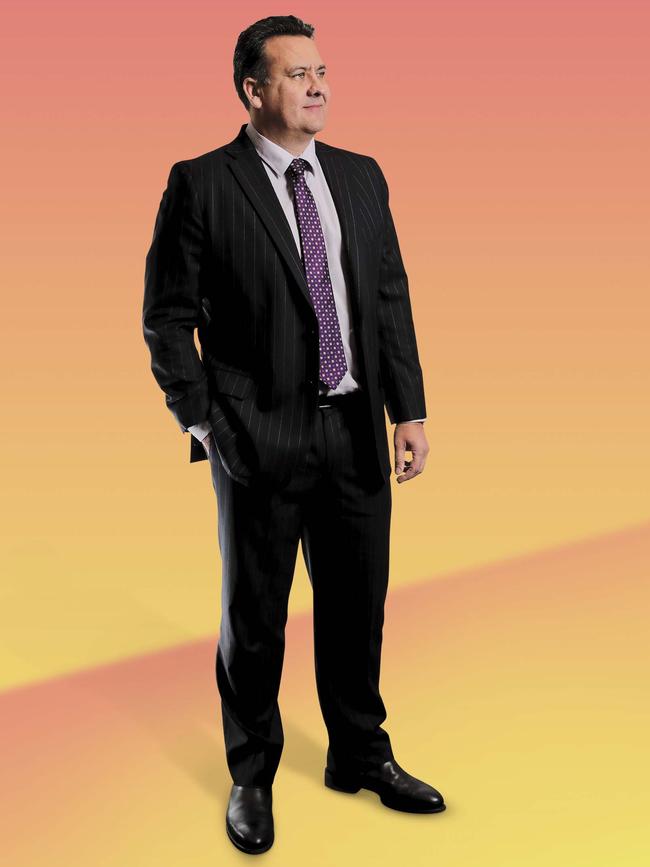
#5. ADAM STANLEY, Pitcher Partners Investment Services
As a horse racing aficionado, Adam Stanley has a modest interest in five nags but so far they have offered limited success. “While I believe they will be champions, the horses are far less convinced of their ability,” quips Stanley, a partner with Pitcher Partners Investment Services in Melbourne.
Like a diligent stayer, Stanley has learnt much along his career journey, which started with an internship in Pitcher’s audit and accounting practice in 1995.
After attaining his chartered accountant badge, he followed his passion for investments and more forward-looking advice. But the timing of his first foray in October 2001 could not have been worse, with global markets reeling from the September 11 terrorist attacks in the United States. Stanley reminded nervous clients about the need to avoid panicked short-term decisions. “In hindsight it was a great way to cut my teeth,” he says.
As the partner in charge of the division since 2013, Stanley and two other partners oversee a team of 11 planners and nine associates, servicing 340 clients with funds under management of about $4 billion. Stanley personally oversees 70 clients, reflecting the firm’s mid-market client base of SMEs, not-for-profits and smaller institutions. Clients generally need $1 million to get a foot in the door, but the average investible amount is $5 million. “Our private client and larger family groups typically have accumulated wealth by operating successful businesses that have spanned generations,” he says.
Typically, Stanley says, small business clients have invested every dollar into their business and have direct property investments such as their business premises and a holiday house. But when these baby boomer proprietors sell, they have large sums to invest and little knowledge of the broader market. “Typically they know their business inside out but are not experienced in the many and varied asset classes, and that’s where we can help.”
Unusually, the firm maintains a six-person research department that formulates its own investment recommendations, rather than following advice from external firms based on model portfolios.
All the firm’s advice is non-discretionary. “We advise clients on what we think is appropriate but they need to understand and agree to the advice,” Stanley says. “The client ultimately is responsible for the final investment decision.”
While Stanley has long moved on from auditing, his old assurance skills continue to come in handy as the advisory industry refocuses on risk and compliance in the wake of the Hayne banking royal commission. “The industry hasn’t covered itself in glory,” he says. “Hopefully the changes such as lifting education standards will build some trust back into the industry.”
Stanley, who sits on the firm’s investment committee, is “broadly cautious” about current market conditions. “The sustained period of low interest rates has encouraged investors to seek higher returns from growth asset classes which inherently carry greater risk and have stretched valuations,” he says.
“Declining house prices, low wage growth and a slowing economy make paying for higher valuations more challenging. We continue to allocate capital to alternatives such as private equity, private debt and infrastructure (such as airports, toll roads and energy utilities).”
Outside working hours, Stanley is a voluntary director on the Harold Mitchell Foundation, a $10 million endowment fund focused on health, education and the arts.
True to the thinking of a financial advisory professional, Stanley takes the ultra-prudent approach of owning 1 per cent of a particular horse. “If you own 1 per cent rather than 10 per cent, you have as much fun and don’t get the training bills,” he says.
In the meantime his racing stocks are on the rise, with the Tony McEvoy-trained filly She Shao Fly winning a recent group three race at Morphettville in South Australia.
Tim Boreham
-
#7. MASON ALLAMBY, Escala Partners
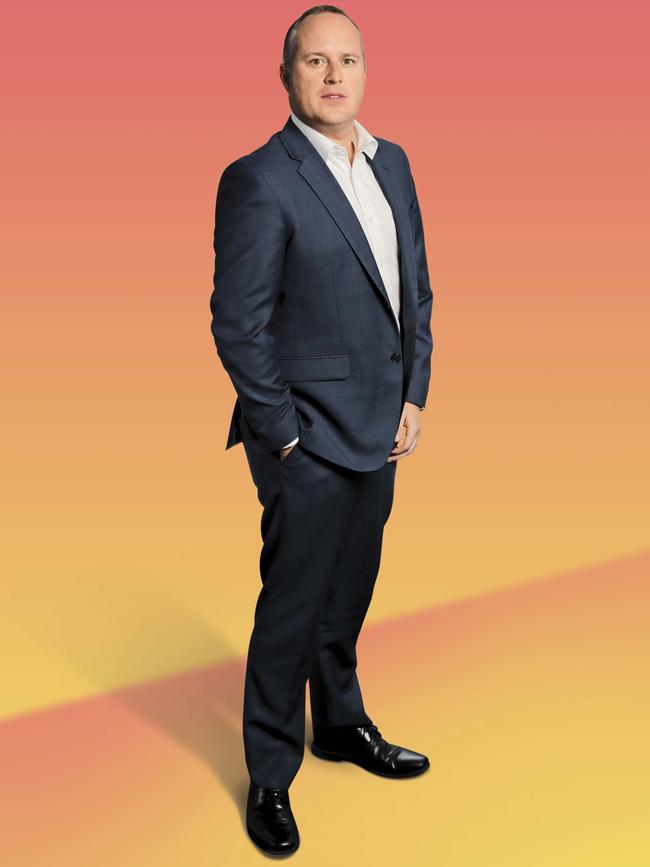
Mason Allamby and seven like-minded fellow planners were at least five years ahead of the times with their advisory philosophy when they quit investment bank UBS to form the boutique firm Escala Partners in 2013.
With a charter of avoiding the inherent conflicts that have continued to dog the aligned advisory sector, Escala adopted a remuneration model based on salaries and bonuses, with no product commissions.
“Reading back over some of the old material that we put together, it almost looks like a checklist of some of the changes that are being made in the industry today,” says the Melbourne-based Allamby.
Apart from avoiding the traditional conflicts such as being tied to in-house products, Escala’s pay model means the firm can use a team approach to service clients, calling in appropriate in-house expertise when needed.
“Commission structures sometimes mean an adviser is trying to be jack of all trades rather than getting a specialist in,” he says. “In forming Escala we also wanted to be able to use the best third-party service providers for clients, rather than being tied to the services of one institution.”
Before UBS, Allamby provided similar advice to private clients and super funds at the financial consultancy Mercer. As well as being a certified financial planner, he is an accredited derivatives adviser.
Teamed with fellow partner Steve Collins, Allamby services a client base oriented towards well-established individuals and families and their children.
“Our work essentially is about preparing investors for the balance of their lives and for the future generations of their families,” he says.
The firm’s clients tend to be more interested in wealth protection than taking risks. “We would be happy to get a 6-7 per cent return for a client with low volatility, rather than trying to shoot the lights out,” Allamby says. “Most clients have made money from selling a business or a professional career. The key is to make sure these funds are protected, rather than double that money again.”
Allamby says advising during the GFC taught him to be upfront with nervous clients and maintain communication. “Prior to the GFC many investors fell into the trap of thinking that just because they were holding blue chip shares, they were conservative investors. A sharemarket correction affects everything.”
Allamby is cautious on the sharemarket but says there will always be investor opportunities (the firm uses specialist fund managers to ferret them out). “While equity markets have had a good run so far this year, the pullback in 2018 shows how volatile things can be,” he says.
He believes the profession is headed in the right direction in terms of developing enhanced compliance and education standards.
“It’s changed a lot since the time I have been in it,” he says. “There’s an education pathway still being worked on, but measures such as mandatory continuous professional development will only make it stronger and protect consumers.
“There’s a generational change occurring within the industry with many of the older advisers who were around when I started retiring, with younger, more educated people coming in.”
Taking the “charity begins at home” adage to heart, Allamby and his wife Natalie recently established the Tristan Allamby Research Fund, named after their eight-year old son, who has the rare neuro-muscular condition Friedreich Ataxia. It is most common in children aged five to 18 years.
The fund will channel money to the Friedreich Ataxia Research Association and other bodies tackling similar diseases.
“The fund is a really big commitment for us, but it’s a race against time for Tristan and other sufferers and we hope medical research finds a solution to either slow the progress, or hopefully a cure,” Allamby says.
Tim Boreham
-
#8. ANITA BECKERS, Macquarie Private Bank
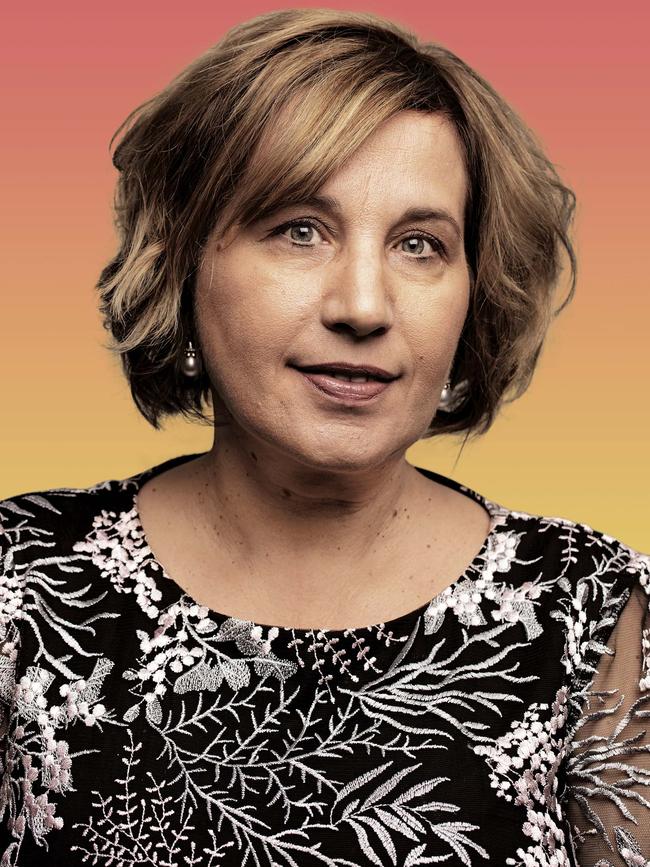
Broadbeach on Queensland’s Gold Coast is not often considered a hot business destination, but it is where Macquarie Group executive wealth manager Anita Beckers has found her niche.
Working in a smaller and more connected area than the larger capital city markets, Beckers prefers the close relationships she is able to establish with her clients. That aspect of the job — the opportunity to be closely involved with those seeking advice — has always been her favourite.
Ever since she was a kid learning maths in the Netherlands, she knew she wanted to work with numbers and that a bank would be the perfect fit. She moved to New Zealand at 18, taking a job as a bank teller in 1989, then moving into the banking and finance side of the business, learning several different aspects of the trade.
Arriving on the Gold Coast in 1996, Beckers found the transition to the banking industry in Australia difficult. “In New Zealand, you have to do a bit of everything,” she says. “In the beginning I found it difficult to let go but that also meant I could totally focus on financial planning.”
The Gold Coast is a lifestyle destination, attracting downsizers and retirees alongside professionals who commute to nearby Brisbane. Many of her clients are looking for quality investment advice to fund their well-earned lifestyles.
“We have a large retiree client base,” Beckers says. “Our client base includes wealthy families moving to the Gold Coast from overseas or Sydney and Melbourne and looking for investment advice. We also provide advice for professionals who are time poor and need someone to manage their financial affairs to provide access to global investment opportunities.”
A strong connection to her clients has paid off for Beckers and her business partner Matthew Gartrell, who now give advice to their clients’ children and grandchildren. Some clients have been with her since she started on the Gold Coast 23 years ago.
“For many of these clients family is very important and they are focused on how they can help their children and grandchildren with their education needs and grow their wealth for the next generation,” she says. “It always comes back to family. My clients feel like my son is half their child too!”
One of the interesting aspects of the market is the strong network of affluent single women on the Gold Coast. Whether they are divorcees or widows who have not had to manage their own finances before, Beckers says they appreciate a woman’s touch. “The industry is dominated by men. I find women feel more comfortable discussing their finances with a female financial planner,” Beckers says.
On the business side, she finds gratification in building and mentoring her team and celebrating its achievements. Her advice to those starting out is to become grounded and established in a particular market.
“Learning how to listen to clients effectively, asking the right questions and building long-lasting relationships are things that come with experience,” she says. “It’s not just a matter of coming straight out of university, getting a job here and moving on. It’s about building relationships.”
Taking her own advice, she plans to keep giving financial advice on the Gold Coast for at least 10 more years.
Mackenzie Scott
-
#11. CHARLES MOORE, Koda Capital
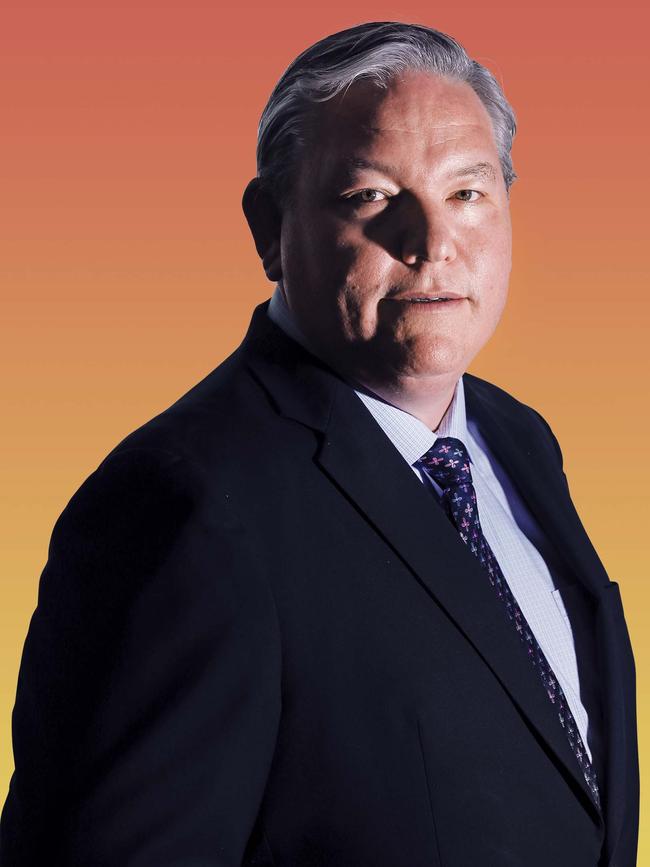
There is always one elephant — whether it’s a sculpture, painting or figurine — in every room at Koda Capital’s three offices in Sydney, Melbourne and Brisbane. What do elephants have to do with financial advice, you might ask.
“The idea is that the elephant in every room is the only elephant allowed in the room,” says founding partner Charles Moore. “It symbolises that we’ll talk openly and candidly about everything else with each other as colleagues and also with our clients. We’re actually in elephant oversupply at the moment because our clients know the story and what it stands for, so they keep buying us new ones.”
It’s a quirky embodiment of the transparency and trust ethos of Koda Capital, which despite launching just five years ago already boasts more than 30 advisers with more than $6 billion worth of assets under advisement.
Moore’s exposure to financial markets was fostered from a young age by his father, also Charles Moore, who was deputy chairman of the ASX in 1987 and pressed the button to switch over to electronic trading just before Black Monday.
Moore started working in sales and marketing before studying a postgraduate diploma in applied finance in his early 30s. At Koda, he looks after about 55 clients, mostly private individuals or families who come to him with a pool of money that represents their life’s work. He says his aim is to give his clients “total financial peace of mind”.
Koda Capital focuses on philanthropic clients and charitable not-for-profits and was voted number one for philanthropic advice and succession planning advice at this year’s Euromoney Private Banking and Wealth Management Awards.
Its growth and success is attributable to many factors, Moore says, including his belief that the company is one of the only “truly independent” Australian firms of any scale. Its independence manifests itself in various ways, including how the company charges for advice.
“The only remuneration that Koda receives is the advice fee that’s paid to us by our clients,” he says. “Any other rebates or commissions paid by product manufacturers are returned in full to client cash accounts.”
Following the banking royal commission, Moore says there are still a number of advice businesses whose profitability is reliant on maintaining multiple streams of revenue, including aligning themselves with distributors of investment products or manufacturing ancillary products such as managed funds themselves.
“Some of them have changed their spots but the core problems still exist,” Moore says.
“Rewards for product sales and transaction volumes are about as conflicted as it gets, so you’ve got to remove all of those to achieve true independence. All of these big integrated firms like AMP who’ve got teams of advisers selling their own product, that’s just got to stop.
“But with regulation I think over time we’ll see the complete separation of product and advice. I maintain that until the industry accepts total independence, this idea of restoring trust is just words on a page.”
Emily Ritchie
-
#12. BERNIE CONNOLLY, Moragn Stanley Wealth Management
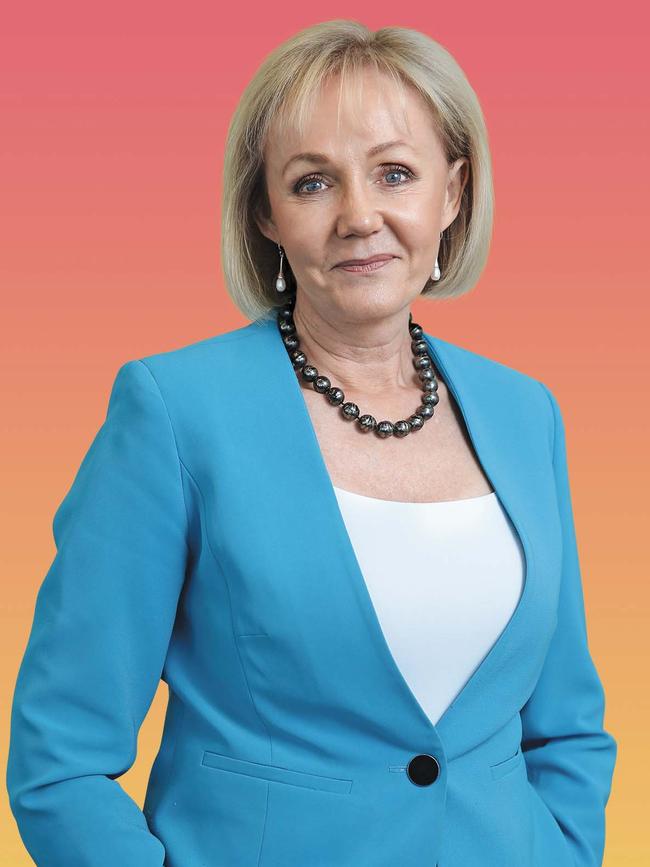
From the moment she walked into her first ever commerce class in Year 9, Bernie Connolly knew she’d found her calling. “I just absolutely loved it,” she says. “I loved studying commerce and economics at school, before going on to study a business degree and a masters in applied finance. And since then I’ve never deviated from that path because I knew from that first day it felt right, it felt really alive to be dealing with financial markets and instruments.”
Connolly and her business partner Patrick Regan started offering financial advice together 14 years ago, spending 10 of those years with UBS before moving over to Morgan Stanley Wealth Management.
They specialise in foundations, charities and not-for-profit organisations as well as wealthy families, and have almost $1.8 billion in assets under advisement. Their success, Connolly says, lies in the stability of their working relationship and their background in global financial markets.
“Both of us spent the first half of our careers working in global financial markets, which for me was spending the ’90s working in fixed income and emerging markets in London,” she says.
“We’ve both got very strong technical skills and a lot of experience by virtue of having worked outside of Australia. Thanks to this breadth of experience across international and domestic sectors, I’ve become comfortable with uncertainty, because it’s part of the job. I understand the importance of steering a steady course, even when you’re surrounded by fog.”
An important focus of their business model is engaging in values-based conversations with clients to ensure they are making intentional and responsible investments.
“The environmental, social and governance focus or ESG has become almost embedded in the way that asset managers now look at companies, but we’ve been integrating that same model into our business for years,” Connolly says.
“We have a lot of investors who are values-based and we really focus on conversations around that broad issue of responsible investing. If companies are doing the right thing by their employees and society, if they are well-governed and if they’re doing things that don’t destroy the environment and that’s using energy efficiently, then of course that’s going to end up delivering a better shareholder return. So it’s logical that these non-financial things are really being embedded as part of an investment decision.”
What really sets their business apart, however, is their belief that emotional discipline is the key to successful investing.
“I’m paraphrasing Warren Buffett here, but to be effective in investing you don’t have to be a genius, you just need a sound framework and the ability to keep emotions from corroding that framework,” Connolly says.
It is their fascination with the psychology and emotional influences behind investment impulses that led Connolly and Regan to study behavioural investment courses at Harvard in recent years.
“It’s become a really important aspect of our approach to investing and advice,” Connolly says. “It’s helped us tremendously with keeping our investors on the strategic path that they’ve set.”
Their team motto is “Integrity, transparency and teamwork”. They also work under the core values of Morgan Stanley, which include “doing the right thing” and “giving back”.
“The concept of giving back really does tie into what we do every day,” Connolly says.
“Even though we’re not a charity ourselves in what we do, we really do think that what we’re doing in the charitable sector for foundations is important.”
While their business has not been directly affected by the findings of the banking royal commission, Connolly says the reform to improve trust and transparency “is a good outcome for the industry overall”.
Emily Ritchie
-
#22. DAVID SIMON, Integral Private Wealth
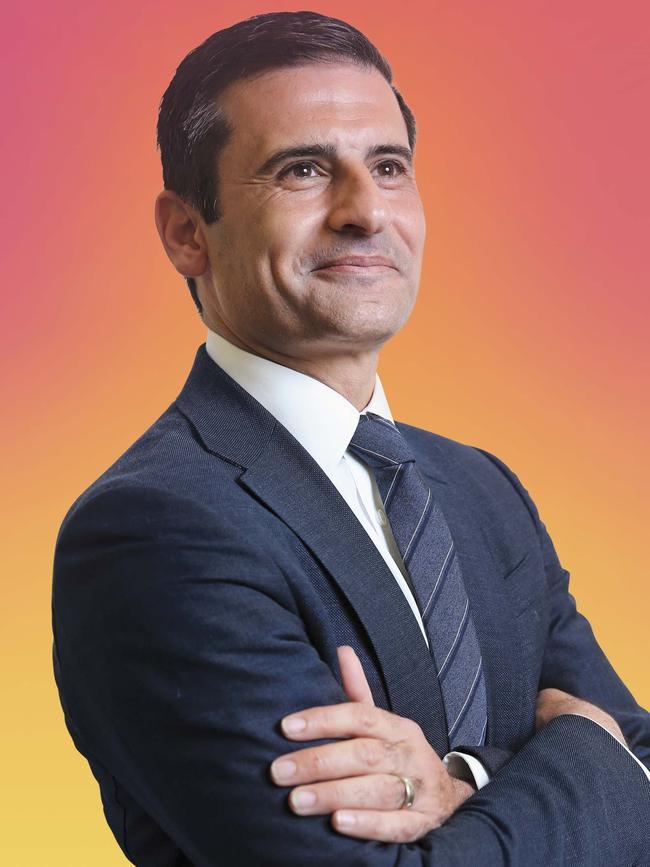
David Simon reckons the bloke who ran into him so hard during a club soccer game that Simon was forced to undergo major spinal surgery did him a favour.
“It was a collision, not a foul,” he says. “He was just a really big guy and a disc in my back shattered.” During his weeks in rehab and bed-bound at home, Simon, then Westpac’s top financial planner, “had time to think about what I wanted to do next”.
He resigned almost immediately after returning to his job at the bank, and opened Integral Private Wealth in June 2015. “I was really happy at the bank but I wanted to challenge myself and I guess I wanted autonomy,” he says.
His firm was originally licensed by Securitor, then Westpac’s dealer group, and he worked out of the bank’s Kent Street offices in Sydney until the following January, when he moved across the road. “I don’t like change,” jokes Simon. “My wife and I have been together since uni and I’ve had the same friends since kindergarten.”
Other directors have since joined the firm, with Simon serving as managing director and chairman, though the title on his business card is principal adviser. “That’s my role. I originally set up shop to be on my own, I didn’t set out to conquer the world, and I still don’t have those intentions.” All the same, Integral Private Wealth has “well over $1 billion” under management with 11 advisers looking after 140 clients.
“We’re very high touch with our clients, though we still look after the first client I met back in 2001,” says Simon, whose firm has an investment minimum of $1.5 million.
He is disarmingly open. “A financial adviser is often more than people need,” says Simon, who is passionate about economics, his original degree. He often points people, pro bono, “to the government’s MoneySmart website where there’s a plethora of fantastic information, and I’ll guide them through using that”.
For clients, Integral Private Wealth has an app: “A centralised platform for everything in your financial life – including your house, your bank accounts, super fund – all reporting in real time.”
The aim is to engage clients in a way that paper-based financial plans never do.
“They’re getting live feeds with respect to their goals and they can quantify what it means for them to go to work today, or to spend this money,” says Simon.
“The artificial intelligence means you can train the system, for example, to recognise expenses that are tax deductible or not, and that can flow through to your accountant.”
And it’s part of keeping clients informed: “We give them a statement every single month — good, bad or ugly — so they can be on the front foot and engaged in their financial wealth.”
Simon argues that the Hayne royal commission into banking and financial services was essential to enable the public “to start trusting us”.
He says: “I’d been embarrassed to call myself a financial adviser. I believe what I do is really important — we give our clients the confidence to make better decisions for themselves and their families — but there’s rightly been a stigma associated with our industry.”
He jokes that he’s “the only capitalist in my family”. His mother Mary Simon “has served the community all her life, so I like to purify my soul by doing good things. We do a lot of work in the community. It’s in my DNA.”
Jane Nicholls
-
#32. AMANDA FONG, Escala Partners
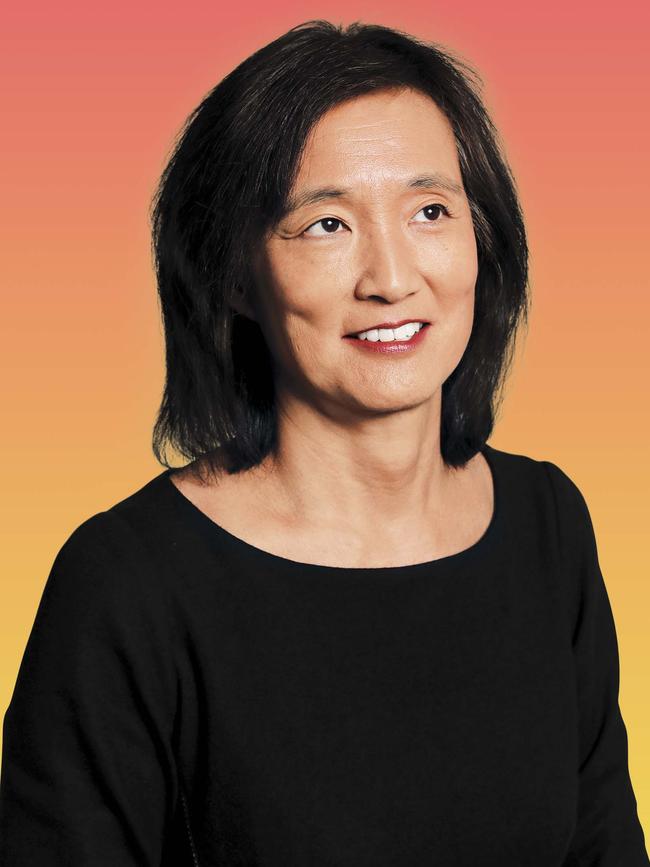
Amanda Fong’s career journey shows that, as with Forrest Gump’s box of chocolates, one can never know what one’s going to get. With a keen interest in investing, Fong armed herself in the late 1980s with a commerce degree and trawled through the phone books seeking a part-time stockbroking job. “Surprisingly, I received a few expressions of interest and accepted a one-day-per-week job at stockbroker McCaughan Dyson & Co, collating economic data,” she says. “It was the equivalent of starting out in the mail room.”
Fong swiftly graduated to the firm’s institutional equities research department. That led her to roles with several of the leading brokers of the time, running her ruler over the banking, retail and building material sectors before turning to private client advice.
She was one of eight wealth management advisers who left UBS to form the boutique firm Escala Partners in 2013, with a charter of offering non-conflicted advice. “The firm does not manufacture any product, nor does it have an economic interest in any investment recommended to clients,” she says.
Fong’s client base includes private investors and a rump of not-for-profit groups and charities (a growth sector for the firm, for which Fong is the lead adviser). But as a rule, an adviser does not “own” a particular client, with the client relationships shared across the team.
She says both not-for-profit and private clients increasingly are seeking advice on applying ethical or environmental social and governance principles to investing. While ethical investing sounds simple in theory, clients often need help navigating this area through negative and positive screening: the former involves weeding out harmful investments, while the latter means actively investing in the ones that help humanity. “Escala tries to bring about a practical approach,” she says. “It’s all very well to say you want to avoid gaming, but what about Woolworths?” (The retailer owns a majority stake in hotelier ALH Group, Australia’s biggest poker machine operator.)
While Fong has long hung up her slide rule — the firm’s stock research is outsourced — she says her research background has helped in areas such as writing proposals and client relationships. “Meeting with CEOs and CFOs helped with developing my professional skills in dealing with senior people,” she says. “It’s also become a handy client referral source.”
Fong says her advice philosophy emulates that of the firm, as determined by the firm’s four-person investment team headed by Giselle Roux. Escala works on the premise of preparing a portfolio to deliver over time, rather than second-guessing the near term.
With any client, she says, the firm highlights optimising investment returns, but also mitigating the risk of a client permanently losing capital.
Fong says the firm is optimistic about the global economy, with first-quarter GDP growth in China and the US broadly better than expected. However share valuations look “full”, with a lack of visibility around corporate earnings. “Domestically dividend yields are largely sustainable and corporate leverage is not excessive,” she says, adding that the firm currently prefers overseas equities over local shares. Ultimately, she says, client returns will be decided by prudent asset allocation.
Outside the firm, Fong is on the investment committee of Melbourne Grammar School and her alma mater, the University of Melbourne.
Tim Boreham
-
#34. OLIVIA MARAGNA, Aspire Retire
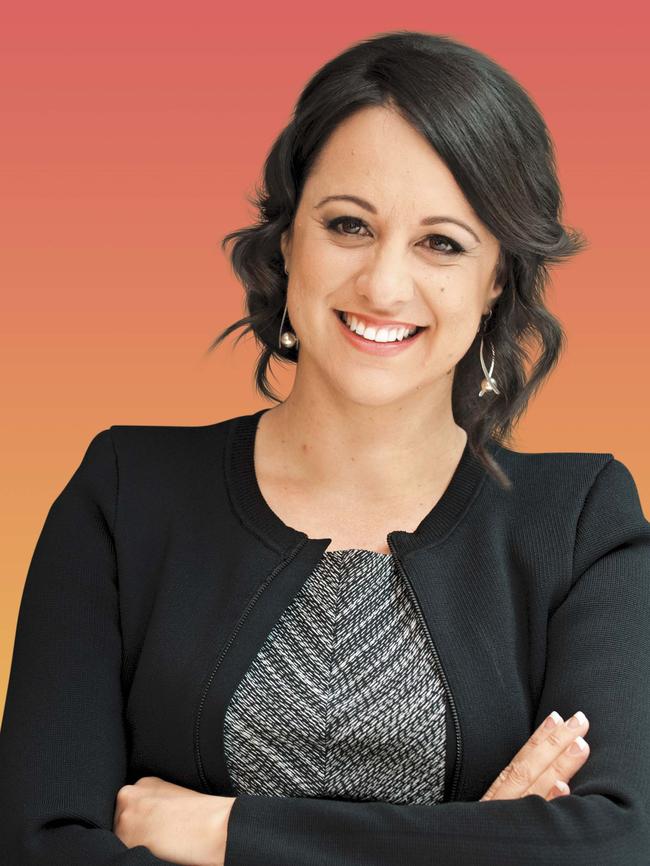
When she turned up to a client’s 80th birthday, Olivia Maragna found 120 people seated for a celebration dinner, and “we were seated on the main table, between the host couple and his cardiologist”. Maragna saw it as a testament to her importance in her clients’ lives. “One client called me the day before he passed away and said, ‘I know you’ll now take care of my wife’,” she says.
Maragna set up Aspire Retire Financial Services in 2003 with Stephen Degiovanni, who is today her husband and managing director of the firm. “We’re both from family business backgrounds so we’ve seen our parents have businesses and work with each other,” she says. “For us it just works. Our skill sets are very different, which made it a perfect fit for building the business and growing it to where it is today.”
Maragna grew up on a farm in central Queensland “planting cane, carrying irrigation pipes across watermelon fields, picking pineapples”. Mad for maths from “day dot”, she thinks she was “born to be an accountant”. As a kid, she ran the farm’s roadside stall with its hanging scales, worked out the profitability of a semi-trailer load of mangoes going to the markets and eventually did the farm’s books, before heading to university for a formal accountancy degree.
Her first four years out were with Deloitte Touche Tohmatsu.
“I loved it, and it’s an excellent foundation for this industry, but I found I was always looking backwards,” she says. “Seeing a client’s situation and saying, ‘If only they’d done X before the end of the financial year, they’d be in a much better position’.” The more proactive field of financial planning beckoned.
Maragna says Aspire Retire’s philosophy is to treat clients as they would their own family, with four financial advisers on the team, 150 clients and $300 million to $400 million of funds under management. Fees are linked to complexity rather than the size of investment. “Investible funds are just one piece of the pie in the service that we offer,” she explains. “We look after our clients very comprehensively, looking at their whole situation: tax, super, family trusts, number of children, estate planning. Everything relates to everything and our fee is based on the individual situation.”
Aligning financial planning with life and death — and divorce — is critical. “I’ve seen the impacts significant events have on families and financial affairs,” Maragna says. “We’re always talking about the health of the family overall, asking if there are issues that we need to be aware of.” For a client seminar last year, she arranged a dementia expert to speak “because it’s such a growing issue in society”.
Maragna says she “trains” her clients to pick up the phone. “If they call us and tell us things, we can make adjustments in tough situations, as opposed to three months down the track and it’s too late. Our clients’ kids are also trained to call us if there are any issues with mum or dad.”
Maragna put her own financial life plan on a spreadsheet when she was 20, with a goal for her 35th birthday.
“I was about 27 when I achieved it,” she says with a laugh.
“The earlier you can get to someone’s financial affairs, the easier it is to build wealth. Money is complex and that leads to a lot of people not investing the time into their financial affairs. We try to make that simple.”
Jane Nicholls
-
#36. PAUL BRADY, Brady & Associates
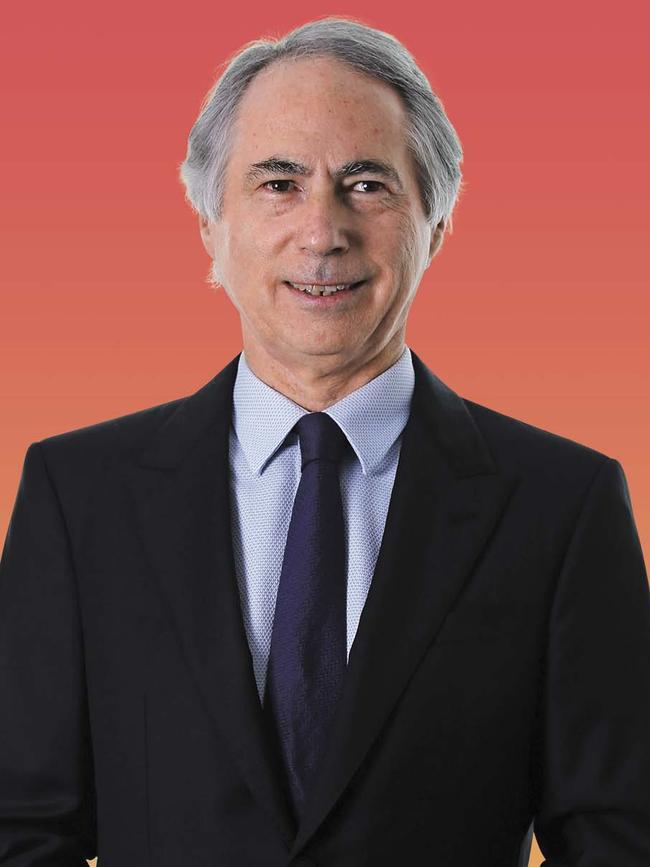
“The why is extremely important to build wealth, it’s not who’s got the biggest pot of money, not by a long shot,” Paul Brady says of his approach to financial advice. “You want to grow your wealth to do something. What is it? My job is to help people dial up their lifestyle and give them more choices — whether it’s retiring earlier, having a bigger holiday budget, or helping the grandkids more. We’re very clear about the why to keep them on track.”
Brady founded Brady & Associates with just a PA in 1992, “grew very gradually”, and now has three advisers, including himself, in the firm. “We’ve chosen to grow by referral and not try to be all things to all people,” he says. Today they look after around 270 clients and have $575 million in funds under management, with no minimum investment level.
After 1987’s Black Monday, Brady — who’d spent a short time working in the money markets — says he decided he’d rather “work with people to help them achieve wealth over time, in a structured, planned, holistic way, rather than just focusing on suitable investments”.
He’s modest. “I’d say we’re not unique,” he says. “There are many very good wealth management advisers in the country, some of whom are good friends, and I think most of us have a far greater amount in common than we have that’s different.”
He eschews the notion of “the financial guru”. Brady & Associates frames its role as consultants across a broad range of issues affecting clients’ financial wellbeing. Quite often, he adds: “It’s those who don’t have the highest income who save the most and who are the most enthusiastic about taking advice, getting on track and getting into good habits.”
He cites a young couple he worked with several years ago. “They did just that and paid off their mortgage quickly, and then started having a great range of life experiences with their children, travelling here and there.” Their friends would ask them how they could afford to do it all. “Most people don’t like the idea of having a budget, and don’t learn to hate their home loan. By getting ahead of the curve early in life, they’d been able to have lots of great choices thereafter.”
“Hate the home loan” is a mantra at Brady & Associates; “Life is a revenue challenge” is another. “It can’t be all about trying to squeeze the lemon — you can only keep your spending in check so much. At some point, you need to generate more revenue, and quite often that involves investing in yourself, your skill set, to achieve your aspirations.”
Brady concedes that the “tough discussions about choices and trade-offs” can sometimes feel like couples counselling. “You can usually tell in the first meeting that one person’s keen to be there with the objective third party who can help have the conversation,” he says. Sometimes the advice is to tell them to spend less, others it’s recommending that they take on some more risk.
“Usually one of the two is twisting in the chair and the other has got a smile. Our job is to be the objective trusted adviser to facilitate those discussions. As long as everyone walks out smiling, we’ve had a productive meeting.”
Jane Nicholls
-
The Top 10 Advisers 2019:
Sue Dahn
FIRM: Pitcher Partners Investment Services
MIN ACCOUNT SIZE: $1,000,000
Garth Hu
FIRM: Morgan Stanley Wealth Management
MIN ACCOUNT SIZE: $5,000,000
Scott Carmichael
FIRM: Escala Partners
MIN ACCOUNT SIZE: $2,500,000
Charlie Viola
FIRM: Pitcher Partners Sydney Wealth Management
MIN ACCOUNT SIZE: $1,000,000
Adam Stanley
FIRM: Pitcher Partners Investment Services
MIN ACCOUNT SIZE: $1,000,000
Ben James
FIRM: Escala Partners
MIN ACCOUNT SIZE: $0
Mason Allamby
FIRM: Escala Partners
MIN ACCOUNT SIZE: $1,000,000
Anita Beckers
FIRM: Macquarie Private Bank
MIN ACCOUNT SIZE: $1,000,000
Craig Emanuel
FIRM: Morgan Stanley Wealth Management
MIN ACCOUNT SIZE: $1,000,000
Matthew Gartrell
FIRM: Macquarie Private Bank
MIN ACCOUNT SIZE: $1,000,000
Top 50 Advisers 2019: See the full list



To join the conversation, please log in. Don't have an account? Register
Join the conversation, you are commenting as Logout